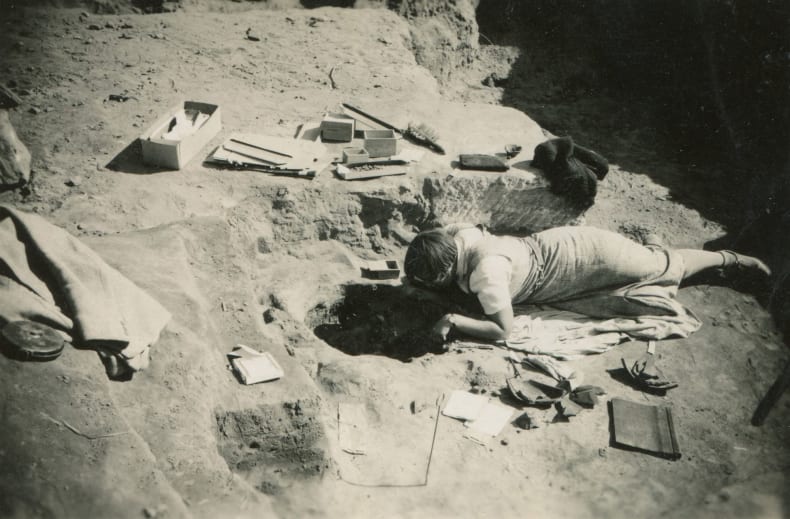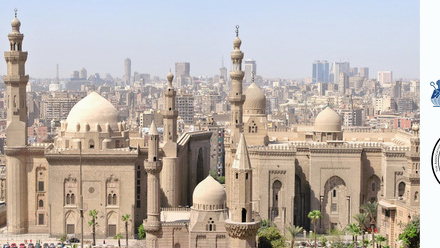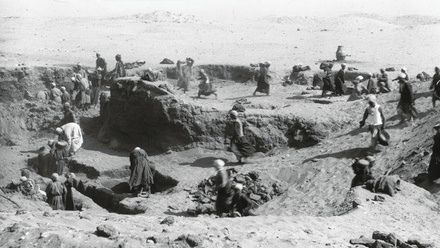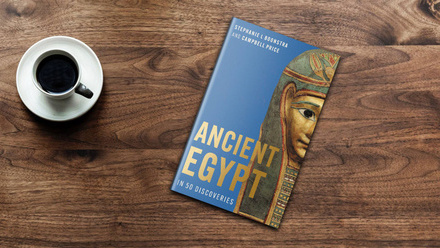Peggy Drower (1911-2012)
I am currently on board the Swan Hellenic ship, Minerva, sailing from Cyprus to Port Said, and early this morning in response to one of the passengers who asked how I first became involved with Swans, I told of how, about 1980, Peggy Drower had recommended me to Mr Swan as a possible speaker on the Nile Cruises, and how grateful I was to her for this. Just an hour later I checked my e-mails for the first time on this cruise and was very saddened to see that Peggy had passed away.
At the time when she suggested I might like to become a guest speaker for Swan Hellenic I was just completing my PhD at University College, where she was, of course, a lecturer in the Ancient History Department. As a post-graduate, I was not taught by Peggy, but I had in fact first met her in 1969 when she interviewed me for a place on the course at UCL. I remember she gave me an extract from Caesar's Gallic Wars to translate, unseen, from Latin and the kindly disappointment she expressed as to how little of it I had managed in the time available! I wasn't surprised when I was not offered a place on the course – but that was entirely due to my own inadequate Latin.
My main connection with Peggy came, of course, because of her very close involvement with the EES. When I first started working for the Society, sorting the archives in 1981 and then from 1982 as a member of staff, she was the EES Chairman and oversaw the activities for our Centenary in 1982. One of my first 'jobs' was to select the images for our Centenary book, 'Excavating in Egypt', and Peggy's knowledge of the Society's Archive was invaluable as she showed me where to look for the best material. The indexing and listing of all the earliest correspondence had been undertaken by Peggy in what was then known as the Muniments Room (the rear part of the first floor of 3 Doughty Mews) where notes, plans and photographs from EES excavations had been deposited. The survival and storage of our early Archive owes much to Peggy's dedication and hard work and the current correspondence lists consulted regularly by staff and researchers are still in the format she devised.
After serving as Chairman Peggy stepped aside from involvement in the organisation of the Society and, in recognition of her services to the EES, she was elected as a Vice-President. She always continued to support our work, regularly attending events and always available to help staff with enquiries which only she, with her long years of experience of Egypt and the Society, could answer. In recent years when I have been writing articles about Petrie and his work, I have come to rely on, and really appreciate, her biography of Petrie and her edition of the letters he exchanged with his wife, Hilda. By making this material available in such readable and easily accessible books, Peggy made an invaluable contribution to the history of our subject.

Peggy excavating for the Society at Armant in the 1930s
In December last year I visited Peggy to mark, on 8th December, her 100th birthday and take gifts on behalf of the Society's Trustees and staff. Although frail, she was as welcoming and gracious as ever and happy to reminisce about the Society. With her passing Egyptology has lost one of its last links to the era of Flinders Petrie and the EES has lost one of its staunchest supporters and friends.
Patricia Spencer
13 November 2012



